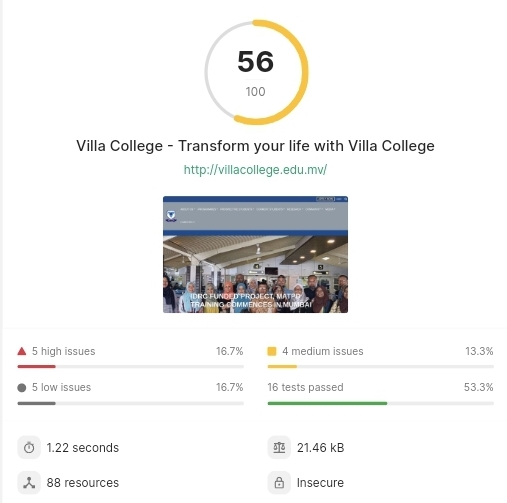What is digital marketing?
Introduction
Digital marketing is just everythings we do to grow a business through different internet channels.
This can mean a bunch of different things, like:
- Getting more website visitors
- Attracting more leads
- Generating more sales
- Driving more repeat purchases
You can accomplish these things in a number of different ways, and each way is a skill of its own.For example:
Want to get more website visitors? Great! You could:
- Increase your rankings on search engines and drive more free, organic traffic
- Post great content on social media and get more people visiting your site
- Send more emails to your existing users and get them visiting you more often
Want to get more leads? Awesome! You could:
- Create some great new content and give it away, in exchange for an email address
- Set up a sales funnel that asks users to enter their phone number to receive a free quote
- Launch an Adwords campaign with the goal of getting prospects to schedule a call
Want to get more sales? Super! You could:
- Create a page that ranks on Google for “<competitor name> alternative”
- Set up a remarketing campaign for users that visited your site but didn’t purchase
- Create an abandoned-cart email that reminds users to complete their purchase
That is how digital marketing for business works. Sounds simple, but these are all difficult things to achieve.
Just because you have a Facebook profile doesn’t mean you’re a social media marketer. The fact that you know how to write and send emails doesn’t make you an email marketer.
Unless you can generate growth, you are not a digital marketer.
Sales Funnels: Growth by Building a Powerful Conversion Path
We don’t need to tell you stories about YouTubers or influencers who make less than minimum wage. Over the years, we've met dozens of people like that: People who are great at things like generating tons of traffic or creating super interesting content…
...yet, they’re unable to use those skills to build a business or get a job in digital marketing. 100% of the time, the reason is that these people don’t understand sales funnels or how to build them.
A sales funnel framework can easily turn any of these people into a very dangerous (in a good way) digital marketer.
Building a sales funnel is the process of systematically turning strangers into customers and advocates. It’s important for you to learn this before diving into any specific digital marketing channel.
Content Marketing: Growth by Delivering the Right Message at the Right Time
9 times out of 10, when you hear someone say they will “invest in content marketing”, what they really mean is “we will start a blog and promise to write regularly”.
Just to be clear: That is not content marketing. In reality, content marketing is much more complex (and fun).
In the past, content and advertising used to be entirely separate. Content creators created content, and advertisers, well, advertisers advertised:
Nowadays, the content IS the advertising.
Content marketers can’t work on their own and marketers specialized in a specific channel (e.g. SEO, digital advertising, email marketing, social media) can’t do their work without content marketers.
Content marketing is woven into every digital marketing channel—it’s the input for every campaign.
It’s a highly strategic skill that every digital marketer should hone (even if they don’t plan on specializing in content marketing).
Digital Advertising: Growth by Launching Highly-Profitable Ad Campaigns
When you’re a beginner, going into digital advertising poses a real chicken and egg problem.
To learn digital advertising, you need to have a budget to spend on ads.
But for people to trust you with their budgets, you need to have experience.
The first time we launched an ad campaign, it was a rough first week. We promise you: You don’t need to learn this the hard way like we did.
We are not going to lie: digital advertising is hard and it takes a lot of trial and error (or tons of experience) to get a positive ROI.
Almost all campaigns start off being unprofitable. What’s important is that you learn, adjust, and optimize to take your campaigns to profit.
Fortunately, we’ve developed a framework for that. (No “secrets”, “hacks”, or “tricks”— just a super straight-forward framework that you can use to launch and optimize any ad campaign).
Social Media: Growth With Powerful, Metric Driven Social Media Campaigns
Every business wants to “be on social media” or “develop a social strategy.”
Only a few of them know what that means.We’ve been there.
When we got started, this is what we did:
- We created accounts on a few social networks.
- We looked up “best times to post” for each social channel.
- We posted the same message+hashtag+image+link combo everywhere.
- We got zero results and abandoned our social accounts.
Sound familiar? We made a common mistake:
Because we use social media in our daily lives, we thought we automatically knew how to use social media for business.
A lot has changed since those days.
To be successful at social media marketing, you need a strategy that covers three main components:
- Monitoring social channels (even when you’re not actively participating)
- Creating and distributing world-class social media content
- Converting social media audiences into leads and customers
Web Analytics: Growth by Figuring Out What Works (and What Doesn’t)
This is the most fundamental skill a digital marketer must have. While analytics is a specialization on its own, every digital marketer must develop at least a basic level of web analytics skills to be any good.
Simply put, digital marketers rely on data to determine what works and what doesn’t. With that said, digital marketing data is definitely a double-edged sword.
With hundreds of metrics and thousands of ways to slice and dice them, it’s easy to feel overwhelmed by the data—believe us, we have been there. But guess what? We’ve got really good news for you.
Most businesses can get away with just FIVE metrics or less. Yes, you read that correctly.
In most businesses (and we are talking even massive venture-backed companies), you’re much more likely to track too many metrics, than you are to track the ones that are most important for your business.
You just need to figure out which are the right five metrics to track. A.k.a you need an analytics strategy.
For some digital marketing optimization tools visit https://seo.maldicore.com





